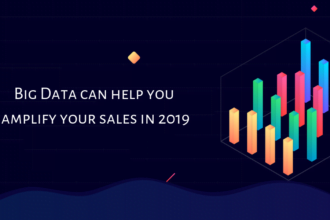Smart Data Collective is exploring why flexibility has become one of the most essential skills for modern data scientists. It is no longer enough to simply master algorithms or statistics; you must be ready to pivot as technology, tools, and expectations change rapidly in the data world. You are living in a time when datasets grow larger every day and new machine learning frameworks appear almost monthly, forcing constant adaptation. There are few fields that reward versatility and openness to change as much as data science.
- Why Flexibility Matters in a Rapidly Expanding Field
- Flexibility as a Catalyst for Skill Development
- Geographic Independence and Global Collaboration
- Entrepreneurship and Project Ownership
- Work-Life Integration Over Balance
- Access to Niche and Specialized Roles
- Financial and Risk Management Considerations
- Fostering Innovation Through Autonomy
- Networking and Community Building
- Building a Career on Choice and Purpose
A report from the Bureau of Labor Statistics states there were about 245,900 data scientist jobs in 2024, and the number keeps rising. It is clear that the profession is becoming central to nearly every industry, from healthcare to finance. You can see this in the way organizations rely on analysts not only to interpret data but also to anticipate future challenges. Keep reading to learn more.
Why Flexibility Matters in a Rapidly Expanding Field
The Bureau of Labor Statistics also reports that job growth for data scientists is projected to be significantly faster than the average for all occupations, with a 34% increase expected from 2024 to 2034. It is a rare opportunity for those entering the field, but it comes with a major responsibility—to stay adaptable as roles evolve. You will find that the skills required today may look very different in a decade. There are constant demands to learn new programming languages, experiment with different data pipelines, and adjust to shifting business goals.
A recent report by Pew Research states that a vast majority—79%—of people in the U.S. interact with AI almost constantly or several times a day. You are part of a society increasingly surrounded by predictive tools, chatbots, and automation. It is this saturation that places even greater pressure on data scientists to remain open-minded and curious. There are always new ethical, social, and technical considerations to balance when designing systems that people use so frequently.
You may notice that flexibility extends beyond technical skills and into how data scientists approach teamwork. It is not unusual for one project to demand collaboration with engineers, marketers, or behavioral scientists. You have to communicate insights across disciplines while translating raw numbers into meaningful decisions. There are countless situations where the ability to adapt communication style is just as valuable as coding skill.
It is true that many data scientists enter the field expecting to spend most of their time on model tuning or analysis. You quickly learn, however, that priorities shift daily depending on stakeholder needs. There are moments when your best contribution is not a complex algorithm but a clear explanation of uncertainty or bias. You are constantly balancing precision with practicality, which demands flexibility at every step.
A flexible mindset also helps data scientists stay relevant when tools and technologies become obsolete. You cannot rely on a single platform or library for long before a better alternative arrives. It is your willingness to experiment and relearn that protects your career in such a fast-changing environment. You have to see each shift not as a setback but as an invitation to grow.
There are countless stories of data scientists who found success by adapting to new challenges rather than resisting them. It is often the most curious and open-minded professionals who rise to leadership positions. You might begin analyzing datasets for one company and end up designing AI ethics frameworks for another. It is this adaptability that turns technical skill into long-term career stability.
The concept of work is evolving at an unprecedented pace. Flexibility has moved from being a perk to a defining feature of modern careers. Professionals now have the power to craft their work experiences around their lives rather than fitting their lives around work. This shift is opening doors to opportunities that were previously unimaginable, redefining career trajectories across industries and transforming the way people approach professional growth.
Flexibility as a Catalyst for Skill Development
One of the less-discussed benefits of flexibility is its impact on skill acquisition. Professionals with adaptable schedules and project-based work can pursue educational opportunities or side projects that expand their expertise. Online courses, certifications, and self-directed learning become more accessible when work is not rigidly structured. Freelancers, for example, can dedicate time to mastering new tools or techniques that increase their marketability, while professionals in flexible roles can experiment with innovative solutions without the constraints of a rigid corporate hierarchy.
Over time, this self-directed learning fosters versatility and resilience. Workers who consistently upgrade their skill sets can pivot into emerging industries or take on higher-value roles, making their careers more sustainable and rewarding.
Geographic Independence and Global Collaboration
Flexible work arrangements often decouple professional opportunities from geographic limitations. Remote work allows professionals to collaborate with teams and clients worldwide, creating exposure to diverse markets, cultures, and business practices. This global perspective enriches problem-solving abilities and enhances creativity, as individuals are regularly challenged to adapt to new ways of thinking.
For businesses, geographic independence means access to specialized talent regardless of location. Companies can tap into skills that may not exist locally, creating a more diverse and innovative workforce. For professionals, it provides a broader network, opens doors to international opportunities, and allows for a lifestyle that might have been impossible in traditional office-based roles.
Entrepreneurship and Project Ownership
Flexibility encourages entrepreneurial thinking. Many professionals now embrace freelance work or consultancy roles, taking full ownership of projects from inception to completion. This autonomy fosters accountability, creativity, and problem-solving skills, as individuals are responsible for the outcomes of their work.
Over time, this entrepreneurial experience can lead to the creation of personal brands, niche services, or even fully-fledged businesses. Flexible work allows professionals to explore ventures they are passionate about while maintaining control over their schedules and client relationships, blending independence with professional growth.
Work-Life Integration Over Balance
Flexibility is reshaping the traditional notion of work-life balance into a more fluid concept: work-life integration. Instead of separating work and personal life, individuals can weave both together seamlessly. Parents can attend school events without taking leave, creatives can schedule peak productivity hours during late nights or early mornings, and caregivers can manage responsibilities alongside professional tasks.
This integration reduces stress and enhances overall well-being. Professionals who can structure their work around personal priorities often experience greater satisfaction and are more likely to remain productive over the long term. Work becomes less of a burden and more of a complementary aspect of life, rather than a rigid, time-consuming obligation.
Access to Niche and Specialized Roles
As flexibility becomes more mainstream, opportunities are emerging in highly specialized fields. Professionals can take on projects that match very specific skill sets, often working for multiple clients or industries simultaneously. This shift enables career diversification and provides access to roles that may not exist within traditional organizational structures.
Specialized work often commands premium rates, making flexible arrangements financially rewarding as well as professionally enriching. Freelancers in fields such as cybersecurity, digital marketing, or creative design can leverage their unique expertise across multiple clients, creating income streams that were previously unavailable in traditional roles.
Financial and Risk Management Considerations
While flexible work offers independence, it also introduces new responsibilities in financial and risk management. Professionals must plan for income variability, retirement contributions, and potential liabilities. Tools and services designed for independent workers, including insurance for independent contractors, help mitigate these risks.
Having the right coverage ensures that professionals can embrace flexibility without compromising security. Occupational accident insurance, general liability coverage, and income protection are examples of solutions that give freelancers the confidence to take on diverse projects while safeguarding their financial stability.
Fostering Innovation Through Autonomy
Autonomy is a key driver of innovation. Flexible professionals often have the freedom to experiment with new methods, tools, and strategies without the constraints of rigid corporate hierarchies. This freedom encourages creative problem-solving and can lead to breakthroughs in both small projects and large-scale initiatives.
Organizations that embrace flexible models benefit from the innovative ideas generated by an empowered workforce. Employees and contractors alike can implement solutions that might not emerge in more structured environments, giving companies a competitive edge while allowing professionals to take ownership of their creative contributions.
Networking and Community Building
Flexibility also changes the way professionals build networks and communities. Instead of relying solely on in-office interactions, remote and freelance work encourage engagement through online platforms, professional groups, and industry-specific forums.
This form of networking can be more targeted and meaningful, connecting individuals with peers and mentors who share similar goals or expertise. For many, these connections lead to collaborative projects, knowledge sharing, and long-term career opportunities that would be less accessible in traditional work environments.
Building a Career on Choice and Purpose
Ultimately, flexibility allows individuals to align their work with personal values and purpose. Professionals can choose projects that resonate with their passions, engage in meaningful work, and avoid roles that do not align with their long-term goals. This alignment creates a deeper sense of fulfillment and motivates individuals to continuously grow and adapt in their careers.
By prioritizing projects and roles that reflect personal values, workers experience higher engagement, creativity, and satisfaction. The ability to shape one’s career around purpose rather than necessity is one of the most transformative aspects of flexible work.
Conclusion
Flexibility is no longer a bonus trait for data scientists—it is a necessity. You cannot predict what the next decade of data science will look like, but you can prepare by developing the mindset to learn, unlearn, and relearn continuously. There are endless opportunities for those who welcome change instead of fearing it.
As the field grows beyond its 245,900 roles and moves toward even higher demand, it is the flexible professionals who will thrive. You are entering a world where knowledge must evolve as quickly as the data itself, and those who remain adaptable will always find a place at the center of progress.
Flexibility is more than a scheduling option; it is a transformative force in the modern professional landscape. By enabling skill development, global collaboration, entrepreneurial ownership, work-life integration, specialized opportunities, and meaningful networking, it is reshaping how careers are built and experienced.
While challenges such as income variability and risk management exist, resources like tailored insurance and financial planning tools help independent professionals navigate these hurdles with confidence. As workplaces continue to evolve, embracing flexibility will be key to unlocking new professional opportunities, cultivating innovation, and creating careers that are both fulfilling and sustainable in the long term.










